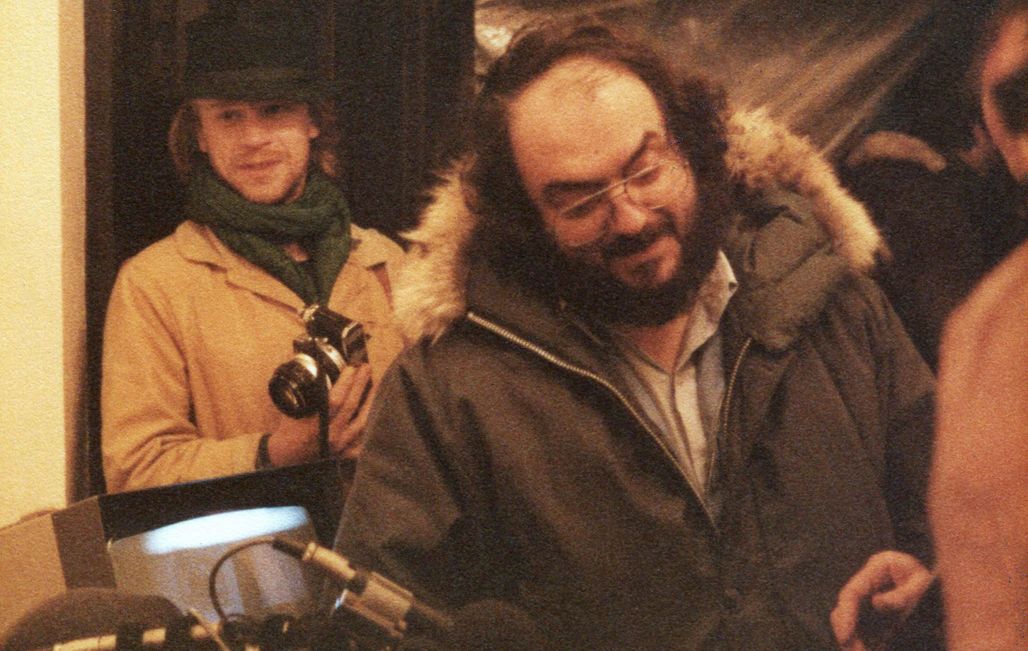
Filmworker, behind the scenes with Stanley Kubrick

For twenty-five years, British actor Leon Vitali was Stanley Kubrick's friend and right-hand man. For this calling, he had given up a promising but short-lived career, the high point of which was his role as Lord Bullingdon in Barry Lyndon (1975). In the fascinating Filmworker, director Tony Zierra reveals the crucial role played by the man who sacrificed everything for the sake of the director of 2001: A Space Odyssey.
Can you say a word about how did this documentary came about?
I had been intrigued by Leon Vitali for years, knowing he was an important part of Kubrick’s inner circle. The first time we met was during the production of SK13, a comprehensive documentary I’ve been working on about Stanley Kubrick, which is completely shot and just needs to be edited. Leon and I were immediately comfortable with each other. After watching the hours of footage I shot with Leon for SK13, my producer Elizabeth Yoffe and I became interested in the arc of Leon’s unique and untold life story and his role as Kubrick’s assistant.
What was your aim when you started to shoot the film?
I was interested in Leon, the actor, who had worldly success at a young age and gave that up to work for Stanley Kubrick. Why would he give up that status to become an assistant? It was such an intriguing and unusual decision to make. I was also equally interested in gaining more knowledge about Kubrick through Leon’s eyes. It was a perspective I felt hadn’t been explored very much. I believed that this approach would give me new insights about the intensity of Kubrick’s creative process and how the brilliant but utterly demanding taskmaster would work people into the ground in service to his films.
Leon Vitali and Stanley Kubrick worked together for 25 years. How strong were the links between them and why?
The relationship between Kubrick and Leon was intricate, complex and layered. It grew over time. It started out as the relationship between director and actor and grew from there. Over the years it became richly creative and brutally demanding. I discovered that committing yourself to Kubrick meant surrendering so much – especially for an actor who gave up all glamour and status to do the grueling but necessary work. Their bond was extremely strong and it was based on deep devotion to the unrelenting work of making great cinema.
What was Vitali's specific role in Stanley Kubrick's work?
Leon’s role encompassed so many things. He was expected to be fully available all the time and Kubrick assigned him an unending variety of tasks and responsibilities. Remember, Leon is also an artist and Kubrick was very pleased with Leon’s sensibility and his work as an actor. So Kubrick utilized Leon as a creative sounding board as well as an assistant. As Leon says: “Whatever it takes.” Filmworker was structured around that concept – whatever it takes to create and maintain timeless pieces of art. Leon’s journey with Kubrick began with finding 'Danny' in The Shining – a crucial role that I believe is the foundation of that film – and from there Leon took on more and more assignments that no other actor has ever taken on. Leon’s contributions were invaluable but he would never feel comfortable taking too much credit for how much he gave to the process.
Can you describe the making process of your documentary?
I work alone with my producer, Elizabeth Yoffe. She’s brilliant because she provides everything I need, especially an amazing sensibility. That allows me to focus and explore different approaches to tell the story. In order to give myself to the process as much as I can, I’ve learned how to take control of the technical aspect of filmmaking as much as possible. I like the handmade approach before applying the final touches of post-production. The editing process is very intensive – I give myself the time I need to work and rework the story. I prepare my footage carefully and spend a lot of time on the audio as well. One of the biggest issues we encountered was condensing Leon’s life and weaving it together with his personal and professional relationship with Kubrick during Kubrick’s life and after his death. Ultimately, for this film, we came to see Kubrick as a character in Leon’s story rather than the other way around.


